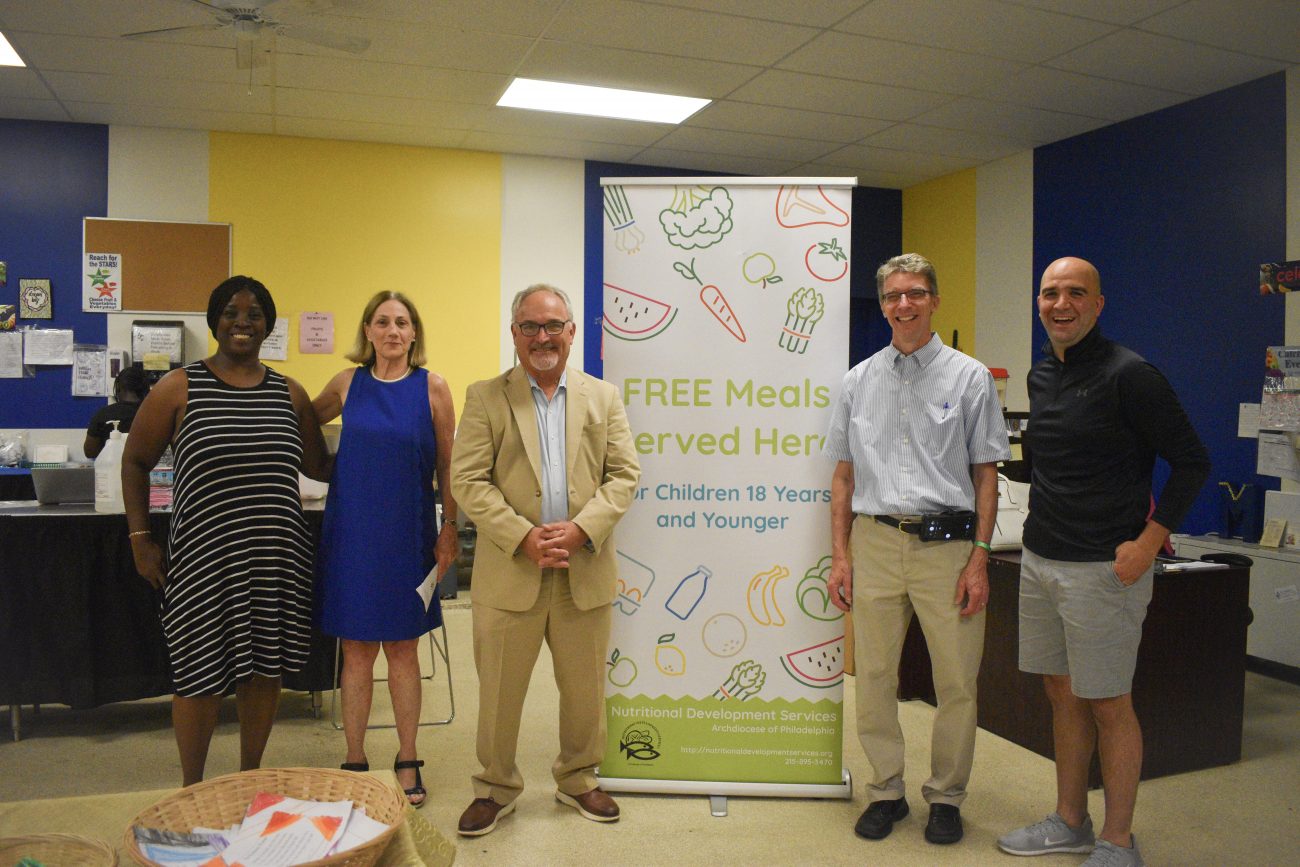In one of the poorest of America’s 10 largest cities, hundreds of thousands of Philadelphia children receive free meals – especially breakfast – through their schools.
But in an especially-hot summer, when classes aren’t in session, those children don’t have school cafeterias to lean on.
“Where are all these kids eating?” Jean Falk of the Archdiocese of Philadelphia’s Nutritional Development Services (NDS) rhetorically asks when faced with the statistics of how child food insecurity dramatically expands each summer, especially in recent years from the aftermath of the COVID-19 pandemic.
“I’m scared to look at a statistic now with inflation…where are all these kids eating? So you can only imagine that gap this year is probably even larger,” Falk adds. “We’re trying to get out there and get as many sites to feed as many of these kids as we can.”
This summer, NDS is stretching its arms further than ever, despite fewer available resources, to meet the needs of as many Philadelphia-area kids as they can this summer. With federal funding, NDS is operating or partnering in about 250 sites across the region to help children, of every faith background who face food insecurity.
“It’s just trying to get sites near where the kids are,” said Falk.“We’re trying to get out there and get as many sites to feed as many of these kids as we can.”
“The mission is to serve one another, and we’re doing it through making food available to people. We are serving all people, not just those of the Catholic faith,” said NDS Executive Director Liz Hagedorn.
This summer, NDS partner sites are projected to serve about 400,000 meals for area children with 235,000 of those being lunches and about 165,000 breakfasts.
“We’re hoping that’s going to help these families reduce that gap, and reduce some of the financial strain that they’re feeling,” said Falk.
Even with the summer past the halfway point, NDS is not done taking on new partner sites who can expand the scope of its reach in feeding children in need this August, particularly because many sites that were in operation before the pandemic began have not been available.
“We are now partnering with different types of sites. So thinking outside of the box and going into hospitals and clinics and wellness areas also,” said Qia Richardson, who is in charge of creating the menus for these sites. “We have about three or four different hospital locations with CHOP, with St. Christopher’s, and we also have some wellness clinics that we are partnering with this summer.”
These sites not only provide a refuge for stopping hunger during the hot Philadelphia summer, but from the struggles of a city which normally sees crime rising in the summer months. Even as Philadelphia’s homicide total through August 1 dropped 22% compared to 2021, it is still higher than the pre-pandemic levels of 2019.
“Not only are they [summer meal sites] providing some type of activity, and of course in Philadelphia, hopefully a safe haven for some of these children, but also, they [children and youth] will be receiving a good portion of what they need that day to continue to grow and thrive,” said Hagedorn.

A camper at Catholic Social Services’ Saint Malachy Out-of-School Time Program in North Philadelphia enjoys a healthy lunch thanks to NDS’ Summer Meals Program. The program is one out of 250 across the region partnering with NDS this year.
The effect of having the simplest needs met can sometimes bring the biggest of psychological lifts when conditions appear the hardest, especially when some of the government programs designed to bring hope during the pandemic have fallen away.
“I just kind of feel sick in my stomach because I see so much of the poverty in so many areas of Philadelphia, and I know that children are not going to have enough food,” said Dave Stier, NDS Assistant Director of NDS’ Community Relations.
“SNAP was cut, and other safety net programs are about to end. And people now have to make choices – What are they going to pay for? Are they going to take it out the food budget or something else? So, a lot of difficult choices for families.”
To get to these families in need, NDS says they need to expand their reach to those who may not know they can get help.
Richardson especially encourages more community organizations to work with NDS in reaching more kids before the summer is out – or even for future years.
“We do want more partnerships, like the hospitals and clinics, finding other areas where we can feed children in locations that they’re going to,” said Richardson.
But Stier admits that federal funding is not doing as much as it used to – further taxing the agency’s abilities.
“The USDA program, their pricing is not keeping up with the economy. The prices have gone up faster than their reimbursements, so it’s putting a strain on the program,” he said, revealing an expanded need for support to keep going what is the largest privately-funded aid provider in Pennsylvania.
Despite these current challenges, NDS remains committed to fighting childhood hunger one meal at a time – something the agency has been doing for five decades.
“I think it’s really important to remind people every once in a while, that the church really is walking the talk here,” said Hagedorn.
PREVIOUS: Conwell-Egan HS Names New Principal
NEXT: Annie Sarlo Appointed Director of Spirituality and Mission for Archdiocesan High Schools, Schools of Special Education




Share this story